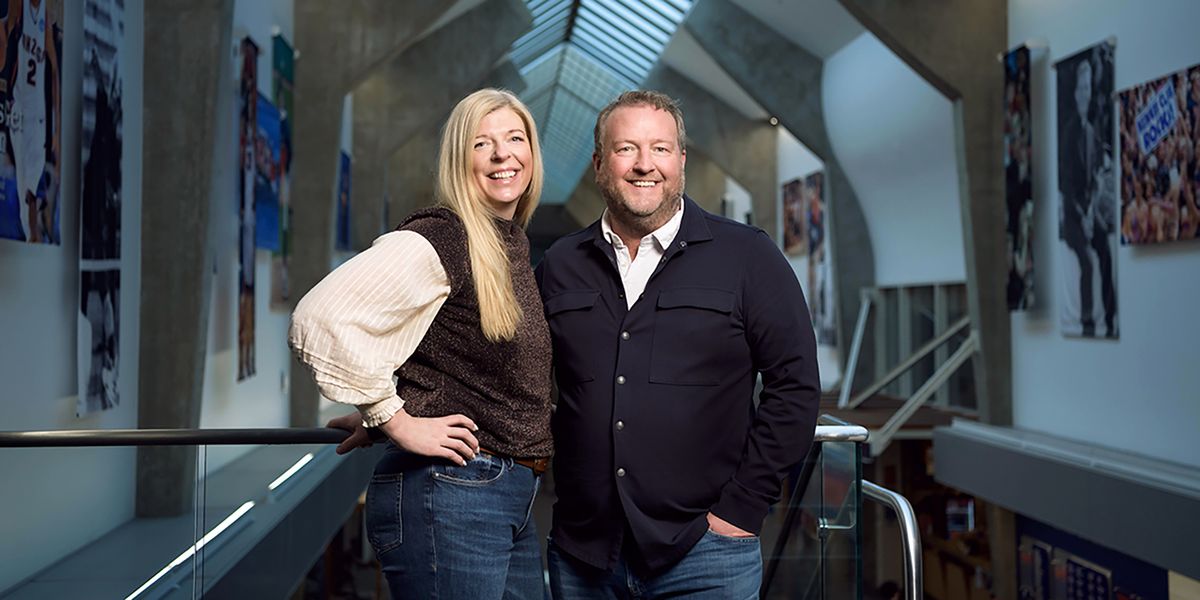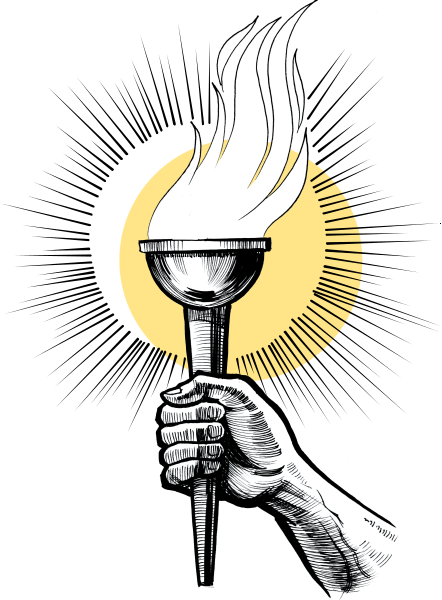Difference Makers: Spokane’s first couple of soccer, Katie and Ryan Harnetiaux

Spokane’s first season on the pitch, featuring two professional soccer teams, has brought a never-ending series of challenges to the Bellevue-based couple who brought the teams to the Lilac City’s newly minted ONE Spokane Stadium.
The highlight came in November when the Velocity men’s team clawed its way to the championship game as an expansion franchise, only to fall short at the end.
The women’s team, the Zephyr, recently took its midseason break that allows international players the chance to rejoin their country’s teams.
In the meantime, Katie and Ryan Harnetiaux, Spokane’s first couple of soccer, say the experience has been a whirlwind of work, learning and excitement.
“We are a lot grayer,” said Katie Harnetiaux, 49, who serves as president for both teams. “I don’t remember the last time we were this tired. Maybe when our children were babies. There are just lots of moving pieces.”
Ryan Harnetiaux, 51, carries the title of managing partner for Aequus Sports LLC, which is the parent company for the ownership group. He quickly deferred to the leadership of Katie, whom he believes is the only female president of both men’s and women’s professional soccer teams.
“We were thrilled with the Velocity season, and we knew that just the nature of League One, that there would be ups and downs,” Ryan Harnetiaux said. “We definitely had those.
“But making the playoffs as an expansion club is almost unheard of. And, making it all the way to the championship game has never been done before,” he continued. “It was everything we had hoped for and thought it could be.”
While the Velocity finished seventh out of 12 League One teams, or third-tier professional teams under the United Soccer League, Spokane kept winning in the playoffs to force its way into the championship game with Union Omaha. Alas, the upstart Velocity lost the match 3-0 on Nov. 16.
The Spokane Zephyr women’s team, which plays in the higher-tiered USL Super League, has gotten off to a slow start. It’s current record of two wins, six losses and six draws places it last in the eight-team league.
“Katie and I are both equally as excited about the women’s team,” Ryan Harnetiaux said. “To bring Division 1 professional soccer to Spokane is an absolutely astonishing thing to do. We are the smallest market in the Super League. We compete against New York, Washington D.C., Dallas and others.”
In fact, the Zephyr are the only Super League team west of the Mississippi River. It’s closest away game is Dallas, more than 1,800 miles away.
Team travel “is incredibly expensive,” Ryan Harnetiaux said. “Our men and women have to travel further. We don’t have a lot of direct flights. Our travel is a bit more of a burden than any other team in our league.”
However, Katie Harnetiaux said the logistics problems are more than outweighed by the response that Spokane fans have given both teams. The first men’s game was a sellout, and the women’s game was highlighted by 400 youth soccer players who welcomed the players onto the field.
“To our fans, I would say just showing up with your presence for our players makes the biggest difference to them on the pitch and off the pitch,” she said. “They are committed to the community. This is where they live now. They have bank accounts. They are bringing their families here.”
The USL is seeking to expand teams, especially on the men’s side, to both Boise and Eugene, Oregon, which could field teams as early as 2026. The hope, Ryan Harnetiaux said, is to have enough West Coast teams to field a division that would play all of its games against West teams before taking on the East teams in the playoffs.
“In order to have a club, you have to have a certain amount of control over your stadium,” he said. “They can’t expand into markets where that isn’t happening. But I’m excited about the growth of the league.”
The couple said Spokane either leads or is at the top of the league in average attendance. Both believe Spokane leads in the number of season ticket holders for both clubs.
Katie Harnetiaux noted that the Dallas Trinity women’s team plays in the Cotton Bowl, which seats about 50,000 people.
“They are struggling to make it look full on TV when you have 5,000 people at a game,” she said.
Ryan Harnetiaux said the way One Spokane Stadium is configured, even smaller crowds create a loud and up-close feel for the players.
“In our stadium … it feels very full at 2,500 people. It’s loud,” he said. “When we get 4,000, it’s insanely busy.”
He noted that the ownership group spent about $4 million on upgrades to One Spokane Stadium, which included locker rooms for both teams, and rooms for coaches and a training room.
When opposing teams “walk out on our pitch, they are amazed at the field and the stadium,” Ryan Harnetiaux said. “It’s a really fun experience for even the visiting teams.”
Learning curve
Now having lived through a full men’s season and half of the women’s, the couple said the most taxing need has been their time.
Ryan Harnetiaux, who attended Gonzaga Preparatory School, retired from 22 years working in wealth management in 2018 before working three years with Katerra Inc., a construction startup that had a facility in Spokane Valley, before the company ceased operations in June 2021.
Katie Harnetiaux, who attended Lewis and Clark High School, became a soccer president after working seven years as the head of North American retail marketing for Amazon. Before that, she worked at Starbucks.
Both had a good grasp of the demands of the corporate world. But, they learned sports ownership is a different animal.
“I spent 103 nights at the Davenport Hotel this year,” Ryan Harnetiaux said. “I’m pretty sure I logged about 50,000 miles. Katie and I wore out the freeway between Seattle and Spokane.”
The couple’s third child, Leo Harnetiaux, is a sophomore quarterback and point guard at Seattle Prep High School. So, they won’t consider moving to the Lilac City until his career is done.
“When we set out to do this, we knew Spokane was the right city to do it in,” Katie Harnetiaux said. “We knew the community would rally behind these teams.”
However, the couple also had to build its support organization at the same time it built two teams from scratch.
“The scale of launching two teams and a front office was incredibly taxing on Ryan and I,” she said. “Without throwing anybody under the bus, there were people … who were excited to have a part of this, but sports is a great leveler. There is no such thing as weekends.”
Ryan Harnetiaux also said the team management also brought unforeseen issues.
“One of the biggest surprises for Katie and I is how hard this sport is on the players’ bodies and mental health,” he said. “We are trying to make it safer but it’s a brutal sport.”
Katie Harnetiaux said having two sons in football – their oldest son, Austin, is a starting linebacker for Nevada – they knew all about sport injuries.
“But both of us were surprised at the level of injury in soccer,” he said. “It just takes people out.”
Despite the continual effort to find not just quality players, but players who were healthy, the couple remains committed to building support for the teams as they move forward.
“What we learned in this last year of the soccer profession, and elements it takes to run an organization at a really healthy pace, there’s a lot to it,” she said. “But if we stay really true to our vision and our mission, we can create a community asset in Spokane that will live beyond us.”
